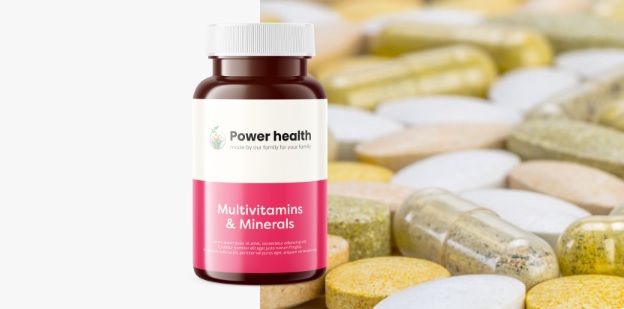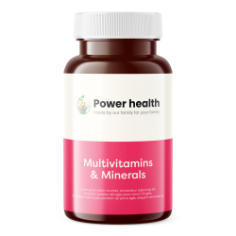Food supplements are concentrated sources of nutrients (i.e. mineral and vitamins) or other substances offering a nutritional or physiological effect.
A wide range of nutrients and other ingredients might be present in food supplements, including; vitamins, minerals, amino acids, essential fatty acids, fibre and various plants and herbal extracts.

The use of food supplements is to correct nutritional deficiencies, maintain an adequate intake of certain nutrients, or to support specific physiological functions. They are not medicinal products and as such their use is not intended to treat or prevent diseases in humans or to modify physiological functions.
What Do Supplements Do?
A permanant fixture of many bathroom cabinets, you’re not alone if you’re one of the millions of the population who take a vitamin or supplement each day.
You may be trying to combat a vitamin deficiency or lower your risk of certain diseases —- or you may just feel proactive about your health after popping a supplement that promises to improve your health.
From vitamin A to zinc, in the United Kingdom, we have been taking dietary supplements for decades. When supplements first became available in the 1940s, people flocked to local pharmacies to stock up on these supposedly magical pills to improve their overall health and well-being — and they never stopped.
Things you need to know about food supplements
Supplements come in many forms
Whether in pill, powder or liquid form, the goal of dietary supplements is often the same: to supplement your diet to get enough nutrients and enhance health.
They contain at least one dietary ingredient, such as vitamins, minerals, herbs, botanicals, amino acids or enzymes. Some of the most popular supplements come in a multivitamin (which can help you avoid taking a dozen pills each day), but they can also be purchased as a standalone supplement.
The simplest common denominator? They’re labeled as dietary dietary supplements. Some common dietary supplements include:
Are supplements worth taking?
There’s a reason supplements are so popular: sometimes, they do work.
In addition to a healthy diet, there is evidence that some supplements can benefit your overall well-being with little to no risk.
Common supplements that may benefit your health include:
- Vitamin B12, which can help keep nerve and blood cells healthy, make DNA and prevent anemia
- Folic acid, which can reduce birth defects when taken by pregnant women
- Vitamin D, which can strengthen bones
- Calcium, which can promote bone health
- Vitamins C and E, which can prevent cell damage
- Fish oil, which can support heart health
- Vitamin A, which can slow down vision loss from age-related macular degeneration
- Zinc, which can promote skin health and slow down vision loss from age-related macular degeneration
- Melatonin, which can help counteract jet lag
Conclusion
If you eat well and exercise regularly, whatever your age, you may already be 'fit-as-a-fiddle' with no ailments at all and no need for any supplements but, if you experience minor, niggling aches, discomfort etc then use of a dietary supplement could help.
Browse and buy from our extensive range of dietary food supplements here.












